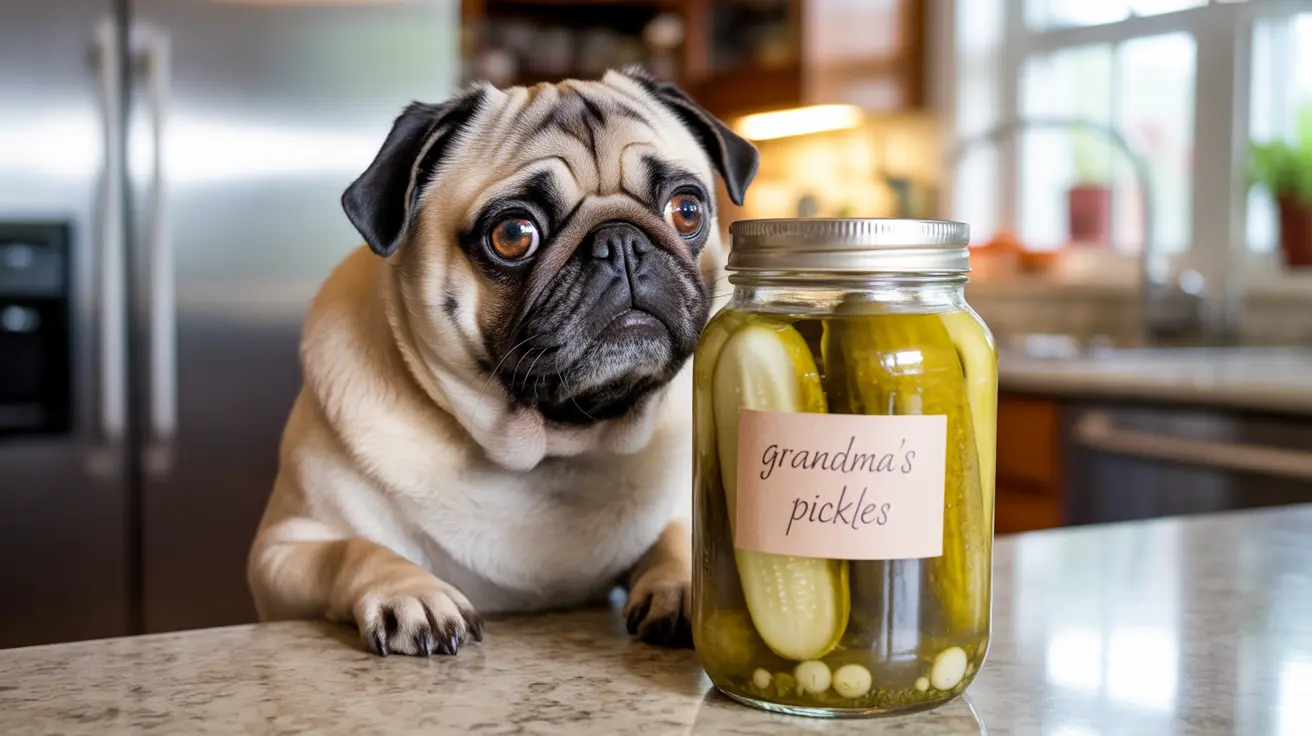As a pet owner, you've probably wondered whether it's safe to share human snacks with your furry friend. One common question that arises is "can dogs have pickles?" While these tangy treats might seem harmless, there are several important factors to consider before offering pickles to your canine companion.
In this comprehensive guide, we'll explore the safety concerns, potential risks, and healthier alternatives to pickles for dogs. Understanding these aspects will help you make informed decisions about your pet's diet and ensure their wellbeing.
Understanding the Risks of Pickles for Dogs
While pickles aren't immediately toxic to dogs, they contain several ingredients that make them a poor choice for canine consumption. The primary concerns include high sodium content, potentially harmful additives, and ingredients that could be toxic to dogs.
The Sodium Problem
Pickles are preserved in a brine solution that contains extremely high levels of sodium. Dogs have a much lower tolerance for salt than humans, and excessive sodium intake can lead to serious health issues including:
- Severe thirst and dehydration
- Urinary problems
- High blood pressure
- Sodium ion poisoning
- Kidney strain
Dangerous Ingredients in Pickles
Many pickle varieties contain additional ingredients that can be harmful or toxic to dogs:
- Garlic and onions (toxic to dogs)
- Spices that may cause digestive upset
- Added sugars in sweet pickles
- Vinegar that can irritate the stomach
- Various preservatives
What Happens If Your Dog Eats Pickles?
If your dog manages to snag a single pickle slice, they'll likely be fine. However, regular consumption or large quantities can lead to health problems. Watch for these warning signs:
- Excessive thirst or urination
- Vomiting or diarrhea
- Lethargy
- Loss of appetite
- Confusion or disorientation
Safe Alternatives to Pickles
Instead of pickles, consider these healthy alternatives that can satisfy your dog's craving for crunchy snacks:
- Fresh cucumbers (the unpickled version)
- Baby carrots
- Apple slices (without seeds)
- Celery sticks
- Green beans
When to Contact Your Veterinarian
While a single pickle isn't usually cause for alarm, certain situations warrant immediate veterinary attention:
- If your dog consumes multiple pickles
- If they drink pickle juice
- If they eat pickles containing garlic or onions
- If they show any concerning symptoms
Frequently Asked Questions
Can dogs have pickles as a regular treat?
No, pickles should not be given to dogs as regular treats due to their high sodium content and potentially harmful ingredients. Stick to dog-specific treats or fresh vegetables instead.
How much sodium is in pickles, and what are the risks for dogs?
A single pickle can contain up to 200-300mg of sodium. For dogs, excessive sodium intake can lead to dehydration, kidney problems, and in severe cases, sodium ion poisoning. Even small amounts can be problematic for dogs with existing health conditions.
Are there any types of pickles that are safer for dogs to eat?
While plain dill pickles might be less harmful than varieties containing garlic or additional spices, no pickles are considered truly safe for dogs. The high sodium content makes all types unsuitable for canine consumption.
What should I do if my dog accidentally ingests a pickle or pickle juice?
Monitor your dog for signs of distress such as excessive thirst, vomiting, or diarrhea. If they consumed multiple pickles or pickle juice, contact your veterinarian. Ensure fresh water is always available.
What are healthier alternatives to pickles for dogs looking for a crunchy snack?
Fresh cucumbers are the best alternative, offering the same crunch without the sodium and harmful additives. Other safe options include carrots, apple slices (without seeds), and green beans.
Conclusion
While pickles aren't immediately toxic to dogs, they're not a recommended treat due to their high sodium content and potentially harmful ingredients. Instead, focus on providing your pet with dog-safe treats and fresh vegetables that offer nutritional benefits without the risks associated with pickled foods.
Remember to always consult with your veterinarian before introducing new foods into your dog's diet, and keep portions of any treats modest to maintain a balanced diet for your furry friend.






